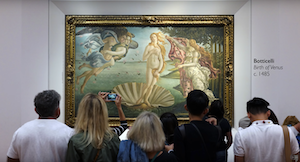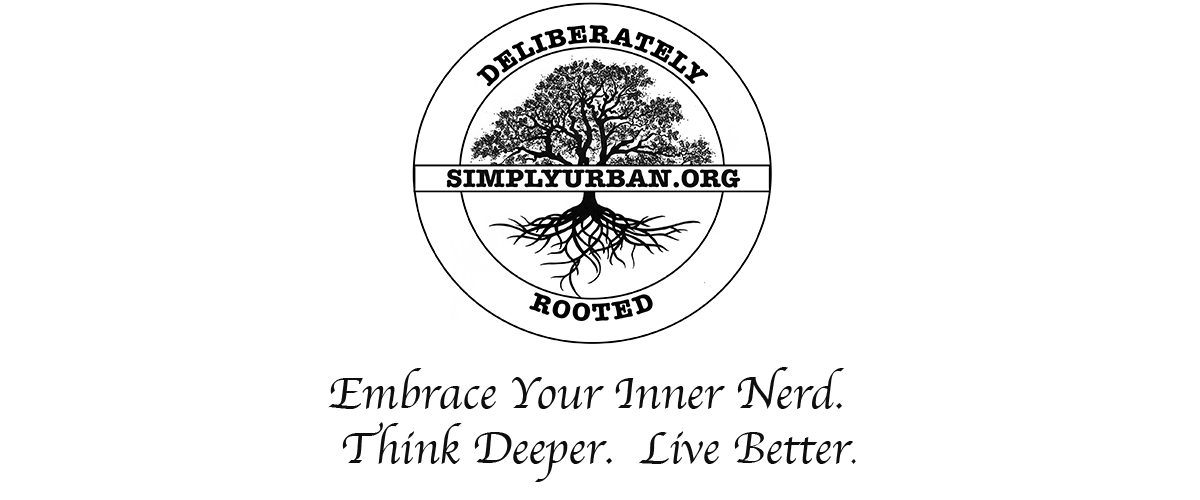I had hoped for happily ever after with her, but it just isn’t going to work. I put a lot of effort into dating, but I still haven’t found my soulmate. And, I’m not alone. According to Pew Research Center:
Barely half of all adults in the United States—a record low—are currently married, and the median age at first marriage has never been higher …
According to First Things, more and more men are choosing to remain single. Now I’m one of them. I think love, dating, and marriage confuse a lot of people. But, we’re powerfully compelled to seek to love. Almost every hit song deals with the topic, and no story worth its salt lacks a romantic angle.
I bought into the myths of popular culture; fast cars, fast money, loose women, and one night stands. I’m not going to lie; it was fun. But, it always left me wanting more. I’m a pro at one night stands, but I don’t know much about love and relationships. I want to explore Plato’s ancient wisdom on the philosophy of love in hopes of shedding light on my relationship challenges.
Plato offers timeless insights into the philosophy of love in The Symposium. In this essay, I explore ideas from The Symposium that helped me deal with my heartbreak and expose the falsehoods of popular myths about love.
This essay is the second in my series of commentaries on Plato’s Dialogues. You can read the first, BREAKING: Socrates Executed for Hate Speech, here. If you’re wondering why I write essays like this read about my blog, here.
Plato’s Symposium: Philosophy of Love
Agathon threw a party to celebrate winning the ‘Oscar’ of his day. He invited his friends, the leading intellectuals of Athens, to an evening of food, drinks, music, and dancing. As the night goes on and the drinks go down, its only natural that the discussion turned to the most fundamental of human drives and motivations: love.
In our time, symposiums are formal discussions by experts on topics of great importance. But, the humanism and honesty of a group of friends drinking and talking late into the night about the philosophy of love seem more real and authentic. The default state of humanity is loneliness. A central feature of our existence is escaping this loneliness and struggling to join with something or someone else to complete our emptiness and cleanse our vulnerability.
Aristophanes: Mythical Love
Aristophanes offers an exquisite tale of love. This myth has become the source of our modern notions of finding our ‘soul mate’ or finding our ‘one.’ Funny how the ritual remains long after the reasons are forgotten.
He describes primeval humans as physically connected to their soulmate from birth, not separate and isolated like modern people. They were round, having four legs, four arms, and one head with two faces that looked both ways. They could walk similar to modern people. But, if they got in a hurry, they would roll over and over, flipping along quickly, with legs and hands alternating in the air.
But, in their arrogance, they attacked the gods. Zeus didn’t know how to react. He could hurl thunderbolts at the attackers and kill them. But, then the gods couldn’t enjoy people offering sacrifices and worshiping them anymore. However, he couldn’t let their insolence go unpunished either. After much reflection, Zeus thought of a way to humble and humiliate these rash creatures. He decided to cut them in two. That way, the gods could get twice as much worship and sacrifice from them. Going forward, humans walked on two legs, with two arms, and only one face. And, if they hadn’t learned their lesson, Zeus would cut them in half again, and they’d have to hop around on one leg.
From then on, people felt lonely and developed a sense of lacking. Each was doomed to wander alone, endlessly searching for their other half to complete them.
Aristophanes explains:
… when one of them finds his other half, … the pair are lost in an amazement of love and friendship and intimacy, and one will not be out of the other’s sight … even for a moment [they spend the rest of their lives together]; yet they could not explain what they desire of one another. For the intense yearning which each of them has towards the other does not appear to be the desire of intercourse, but of something else which the soul desires and can not [explain, and] has only a dark and doubtful presentiment. [If you asked them] “What do you people want of one another?” they [could not explain. But, if you asked instead]: “Do you desire to be wholly one; always day and night to be in one another’s company?
For if this is what you desire, I am ready to melt you into one and let you grow together, so that being two you shall become one, and while you live a common life as if you were a single man, and after your death in the world below still be one departed soul instead of two—I ask whether this is what you lovingly desire …?”—there is not a man [or woman …] who would deny … that this meeting and melting in one another’s arms, this becoming one instead of two, was the very expression of ancient need. … Human nature was originally one and we whole, and the desire and pursuit of the whole is called love. There was a time … when the two were one, but now because of this wickedness of men and gods has seperated us …. (pg 157)
The Objects of Our Affection
Aristophanes’ story has endured the eons. Most lovers today share this view, seeking their soul mate or better half. But, Socrates approaches the philosophy of love a bit differently. He rationally analyzes the points made by others. Then, he goes on to explain the mystery of love, as told to him by the priestess, Diotima.
Before I go too much further, let me say that philosophy always challenges my reading skills. It takes a lot more effort than popular fiction. Reading philosophy requires more effort. But, I discover timeless truths that help me see more clearly. The passing of eons, different languages, and cultures that separate us from Plato makes his work more difficult. Hopefully, this essay will enhance your understanding of the text and provide some useful context.
To continue, Socrates, who is always the main character in Plato’s dialogues, begins his analysis by analyzing the nature of love. Love doesn’t occur in a vacuum. It exists in relation to another. Love exists when I love my mother, or I love my dog, he explains. But, to say, ‘I love nothing,’ means an absence of love or no love. Thus, love only exists when it has an object. So, love is the love of something because to love nothing means no love at all.
Love Implies a Lack
So, love means the love of something. The love of something means a desire for something that is lacking. If a poor man says he wants to be rich, he does so because he is not rich. A rich man can not say he desires to be rich at this instant in time because he’s already rich. He could say he wants to continue to be rich in the future, but he cannot desire to be rich because he is already full of rich.
As I write this, I have a cup of coffee on my desk, and I want a sip. I can want a sip of coffee only when my mouth is empty. But, once I have a sip of coffee in my mouth, I can’t want another sip at the same time because my mouth is full of coffee. If I put more coffee in my mouth, in that instant, it would spill out onto my shirt, and I don’t want that. However, after swallowing the sip of coffee, I may again desire another sip. But, in any event, my desire to sip coffee always arises out of not sipping coffee. And I don’t desire to sip coffee at the instant of sipping because my desire is satisfied in that moment. According to Socrates, this analogy holds across the spectrum of wants.
So, we’ve determined we can only love something that we want, but don’t have. We wouldn’t love something we don’t even want. Socrates expands on this idea of the objects of our affections going through a chain of reasoning to establish that the objects of our love are good and/or beautiful. We may desire something bad, but that isn’t called love. For example, the desire for something like heroin is called addiction, not love.
That might sound a bit dry. But, try to pay attention. I tie all of this together at the end in a pretty interesting way.
Prophetess of Love
Socrates finishes his analysis of the other’s speeches. He then relates his lessons on the philosophy of love taught by Diotima of Mantinea, a priestess or prophetess.
Diotima taught him that love is the desire for the good and beautiful things that we want but don’t have. Acquiring good and beautiful things leads to happiness, a just end needing no further elaboration. But that begs the question. How do we put this into practice? Meaning, what good and beautiful things do we lack, the acquisition of which would make us happy? My essay, In Pursuit of Happiness, reviews the scientific research on that topic.
Mystery of Love
Diotima explains the mystery of love. As an education for non-believers, I use mystery in the Christian sense, described here.
“I will teach you;—love is only birth in beauty, whether of body or soul. I mean to say, that all men are bringing to the birth in their bodies and in their souls. There is a certain age at which human nature is desirous of procreation; and this procreation must be in beauty and not in deformity: and this is the mystery of man and woman, which is a divine thing, for conception and generation are a principle of immortality in the mortal creature. And in the inharmonical they can never be. But the deformed is always inharmonical with the divine, and the beautiful harmonious. Beauty, then, is the destiny or goddess of parturition who presides at birth, and therefore when approaching beauty the conceiving power is propitious, and diffuse, and benign, and begets and bears fruit:
… mortal nature is seeking as far as is possible to be everlasting and immortal: and this is only to be attained by generation, because the new is always left in the place of the old. … a man is called the same; [over time although] he is undergoing a perpetual process of loss and reparation—hair, flesh, bones, blood, and the whole body are always changing. And this is true not only of the body, but also of the soul, whose habits, tempers, opinions, desires, pleasures, pains, fears, never remain the same in any one of us, but are always coming and going. … this is also true of knowledge; … so that in this respect we are never the same; but particular knowledge also experiences a like change.
For what is implied in the word ‘recollection,’ but the departure of knowledge, which is ever being forgotten and is renewed and preserved by recollection, appearing to be the same although in reality new, according to that law of succession by which all mortal things are preserved, not by absolute sameness of existence, but by substitution, the old worn-out mortality leaving another new and similar one behind *(pg 168 – 170).
Striving to give birth to beauty makes a lot of intuitive sense to me. I often wonder what my life means. Am I doing the right things? Am I a good person? Will anyone remember me when I’m gone? The answer to these questions varies from person to person. But, I think we all wonder whether we matter or not, that is to say, are we giving birth to the beautiful and the good? In other words, our lives matter to the extent that we produce good and beautiful things.
Values Drive Motivations
Since different people have different answers to the question, ‘am I becoming the person I should be?’ we strive for different things. But, the subtle power of love motivates us to give birth, in ourselves and the world around us, to our definition of what’s good and beautiful. We give birth to the good and beautiful in ourselves by trying to actualize the things in the world in which we believe. That’s why I spend hours reading philosophy and writing these essays even though it doesn’t pay a dime. Teachers and pastors don’t make a lot of money, but they motivate and inspire others. That is to say; they give ‘birth’ in others to the things they believe to be good and beautiful.
Embrace The Good and The Beautiful
Continuing with this line of inquiry, we see that people create different things, some create art, others build companies, some focus on their children, etc. Each person has a different perspective on what’s good and beautiful. This different perspective motivates people to pursue different things.
So, Socrates and Diotima go on to consider what sorts of things are the most good and beautiful.
[we should] embraces the beautiful rather than the deformed; and when [someone] finds a fair and noble and well-nurtured soul … there is union of the two in one person, [they’re] full of fair speech about virtue and the nature and pursuits of good [people, through education] bring forth
Botticelli, Birth of Venus, c. 1485
the beautiful … they are bound together by a far nearer tie and have a closer friendship than those who beget mortal children … [education about the the truly good and beautiful teaches a man to value substance over appearances] this will lead him on to consider that the beauty of the mind is more honorable than the beauty of the outward form. So that if a virtuous soul have but a little comeliness, he will be content to love and tend him, and will search out and bring to the birth thoughts which may improve the young, until his beloved is compelled to contemplate and see the beauty of institutions and laws, and understand that all is of one kindred, and that personal beauty is only a trifle; and after laws and institutions he will lead him on to the sciences, [… he’ll be drawn to the] abundance of beauty and drawing towards the sea of beauty, and creating and beholding many fair and noble thoughts and notions in boundless love of wisdom … * (pg 172)
In Search of a Beautiful Soul
Maybe that’s where I went wrong. Popular culture instructs us to seek the superficial and the shallow. This music video demonstrates popular culture values.
Halsey always puts out catchy tunes. But, the whole idea of the song is her criticizing some guy for only wanting superficial things like money, drugs, and cars. This in a music video that depicts an orgy in a barn that has a chandelier for some reason. The whole music video, and by implication, Halsey herself is presented as nothing more than tits and ass. The only man who would date someone like Halsey must necessarily only be interested in shallow and superficial things like that because that’s all she seems to offer.
Turn to Beauty
The video is very sexual. Even though the people in it are attractive, I wouldn’t say they’re beautiful because all they’re doing is satisfying their sexual appetites. Halsey’s upset with some dude because he’s too busy satisfying his base appetites to give her what she wants. I empathize with her, though, because her lyrics seem to yearn for something good and beautiful, but she’s stuck in a place of base appetites. She encourages and promotes superficial cravings even though she objects to them. I don’t mean to cast stones. I’ve lived most of my life by the same credo that Halsey, and popular culture tout. It led to a sense of loneliness and emptiness for both of us.
But, according to Socrates, there’s a higher love and greater rewards in pursuing beautiful souls in conjunction with others rather than focusing so much on superficial things of the flesh. I have little experience to offer here because I’ve always focused more on beautiful bodies and superficial things. But, I don’t like where it’s gotten me. So, I think I’ll focus on good and beautiful souls from here on out, and let you know how it goes.
Captain Obvious or Professor Implicit
Talking about deep subjects like this risks becoming a Captain Obvious or Professor Implicit. Everyone knows Captain Obvious (see funny video below). Not as well known to most is Professor Implicit. I’m currently struggling through his online Multi-Variate Calculus class. He makes me really want to hit him in the head with fruit. Professor Implicit assumes you know as much about Multi-Variate Calculus as he does, which requires me to do an extra hour worth of research for every ten minutes of the lecture which I could easily avoid if the dear professor had added an extra sentence or two of explanation.
So, there’re a lot of implications for the idea of love. First of all, its the central tenant of Christianity, which goes very deep. Jesus’s prime command is to ‘love as I love.’ I think love is the central feature of human existence. Meaning it drives everything we do. At the risk of being a Captain Obvious, I’ll restate our definition of love. Love is the desire for The Good, The Beautiful, and The True that we currently lack in our lives. We try to satisfy this desire in various ways unique to each individual. Halsey longs for a good man to have a baby with while her beau seems bent on satisfying his desires with money, drugs, and cars. Now, the universe is structured such that we can never fully actualize Love, so we’re left struggling and yearning for it all our lives. I can’t speak to the satisfaction of having someone’s baby, but I can tell you that money, drugs, and cars aren’t all that satisfying in the end. This struggle and yearning that can never be satisfied, like looking for the other half you’ll never find, creates the foundation of human motivations and drives.
What do you think?
Thanks for reading to the end! This blog is my project in the pursuit of truth. I spend dozens of hours researching each blog post, so I hope you found something useful.
Our click-bait culture needs good ideas in an increasingly complex world. That depends on good men and women engaging in intellectually honest discussions, sharing ideas, and challenging each other’s thinking. Writing out my thoughts in detail, along with lots of research, helps me arrive at a more accurate view of truth based on well-documented facts.
If you’d like to support my blog please buy my book. Here’s the link!





20 Comments
Leave your reply.